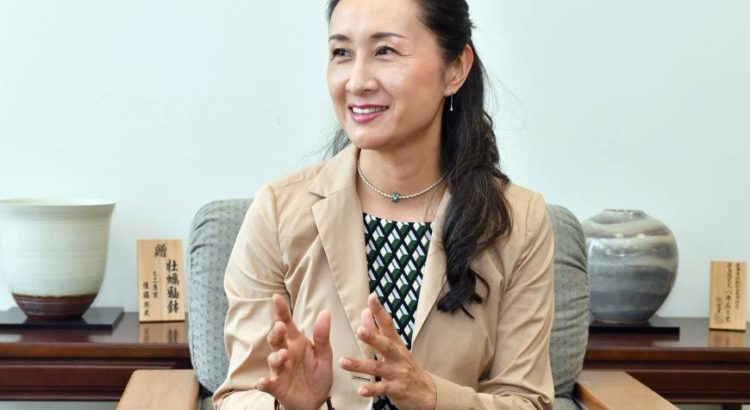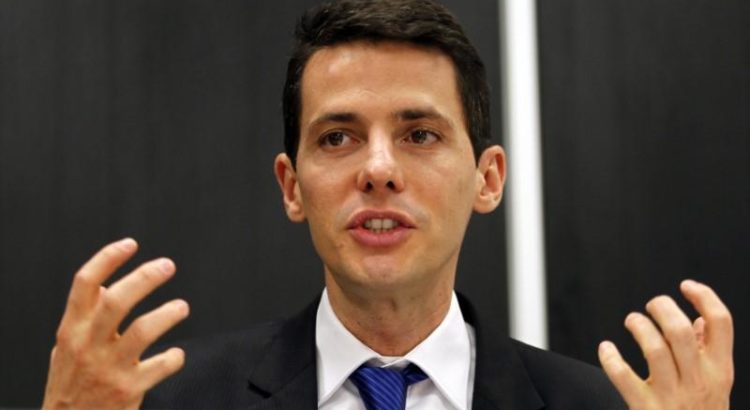Asia/Japan/26.06.18/Source: www.japantimes.co.jp.
Hiroshima Prefecture is set to open an International Baccalaureate boarding school next spring — a rare move by a local government that officials hope will help schools shift away from Japan’s typically passive style of education.
The prefectural government, with a goal of nurturing future global leaders, is launching Hiroshima Global Academy (HiGA), where it will offer IB programs for junior and senior high school students with a particular focus on English-language education. And unlike many IB programs, tuition will be free for most pupils.
Rie Hirakawa, superintendent of the Hiroshima Prefectural Board of Education, said opening the school is part of the prefecture’s efforts to break away from the country’s conventional teaching methods.
“Teachers across the prefecture are now trying to change the education style in elementary and junior and senior high schools, but it’s difficult to do something drastic all of a sudden (at existing institutions) so opening a baccalaureate school would be a step in that direction,” Hirakawa said in a recent interview with The Japan Times in Tokyo.
International Baccalaureate, an internationally recognized program adopted in over 140 countries and territories, promotes active learning, insightful thinking and initiative on the part of students.
As of April 1, Japan had 58 schools that offer a total of 81 IB programs across three age levels. The program is mostly available at international or private schools.
“(Students) can experience something close to studying abroad without leaving Japan and acquire English skills that would enable them to study at an overseas university,” said Hirakawa, a former top salesperson at Recruit Co. who assumed her current post in April.
“We hope to get children who are interested in this type of education to come to this school,” she added.
“The tuition fee is basically free, so students from Japan and abroad can receive International Baccalaureate-standard education regardless of their economic situation,” she said.
IB programs at private institutions cost as much as several million yen annually, making it difficult for most households to enroll their kids in the program. At HiGA, only high school students coming from families with a household income of more than ¥9.5 million will be required to pay tuition of ¥9,900 per month. Room and board will cost ¥40,000 per month for every student. For Japanese students, English is not a prerequisite to enter the prefecture-run school, which will debut with 40 first-year junior high school students next April.
Eventually, each grade in junior high will have 40 Japanese students, while each high school class will comprise 40 Japanese and 20 foreign students, Hirakawa said.
Applications for HiGA’s inaugural class will be accepted from Nov. 8-14. Students from across the country are eligible for admission.
In the school’s first three years — before it admits its first group of foreign students — major subjects, including mathematics, social studies and science, will be taught in Japanese.
But others, including art and physical education, as well as after-school and extracurricular activities, will be conducted in English to prepare Japanese students for rigorous English-language high school education in line with the IB program.
The Hiroshima academy is set to offer the Middle Years Program and the Diploma Program for junior and senior high school age students, respectively. Toshikazu Hasegawa, vice president of the National Institution for Academic Degrees and Quality Enhancement of Higher Education, said he sees the academy’s undertaking as “ambitious.”
“Japan’s secondary education follows a traditional system that is very different from International Baccalaureate education, so the introduction of such programs is a welcome move that will bring diversity and international viewpoints to secondary school teaching,” Hasegawa said.
The location of the new school promises to be another attractive aspect of the institution for prospective students. The ¥7 billion campus is being constructed on Osakikamijima, a remote islet in the Seto Inland Sea.
“It’s a scenic island. Blueberries and lemons are grown here, there’s a farm that cultivates oysters and lobsters, and there’s a hot spring in the mountains,” Hirakawa said. “The population is on the decline, but we’re working on revitalization under the concept of turning it into an island for education.”
Osakikamijima’s population, at 7,646 as of the end of May, has been shrinking — down from about 14,000 in 1985 — and aging — the proportion of residents age 65 and over sits at around 47 percent, more than double the figure from three decades ago, according to Osakikamijima town officials. The island is only accessible by ferry, mainly from Takehara.
Kensaku Yoshida, director of Sophia University’s Center for Language Education and Research, noted that while the number of IB programs is likely to grow in Japan, one of the challenges involves training enough teachers to be able to meet the demand for this unique style of education.
“In that sense, we could see more programs that have elements of IB rather than official IB programs down the line. A realistic and quick approach may be to promote IB education by using it as reference and not be too particular about the brand,” Yoshida said.
Hirakawa said the academy has been sending Japanese teachers overseas to undergo training for the IB system. As for foreign teachers, the school plans to hire people who have yet to be trained with the program and prepare them over the coming three years.
“We’d like to hire people who are interested in living in the countryside and teaching children as part of a learning community,” Hirakawa said, adding that targets include those working in Japan as assistant language teachers.
“Hiroshima Gov. (Hidehiko) Yuzaki is thinking big and soliciting students from outside the prefecture. He considers children who spend six years in Hiroshima to be local kids and thinks it’s a good idea for the prefecture to raise internationally minded leaders,” she said.
Source of the notice: https://www.japantimes.co.jp/news/2018/06/22/national/hiroshima-prefecture-open-international-baccalaureate-school-looks-move-away-japans-passive-education-style/#.WzFbBlVKjIW








 Users Today : 33
Users Today : 33 Total Users : 35460164
Total Users : 35460164 Views Today : 50
Views Today : 50 Total views : 3418833
Total views : 3418833